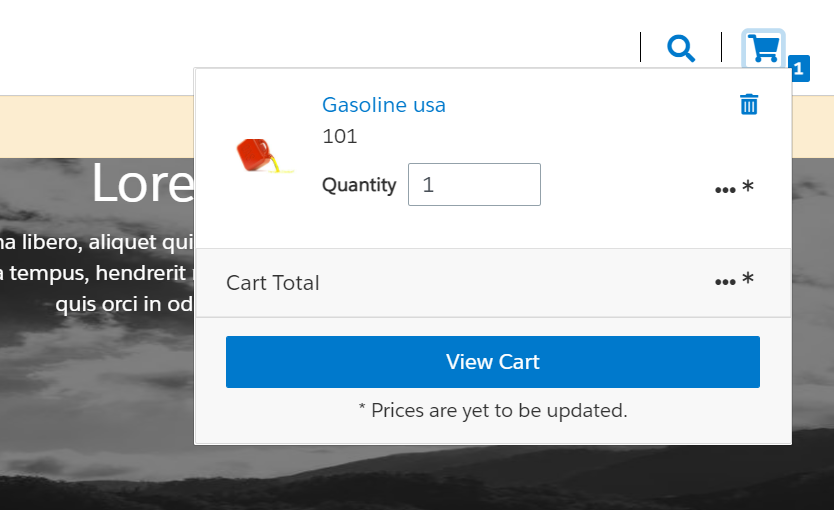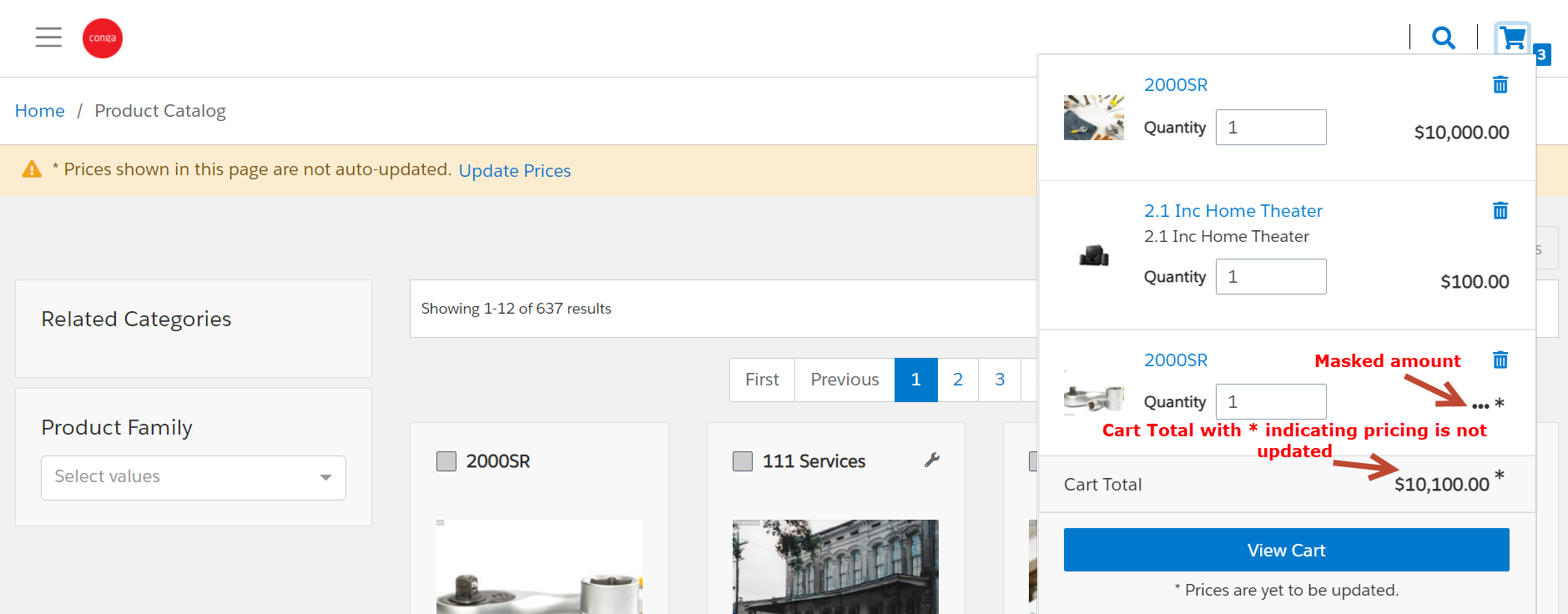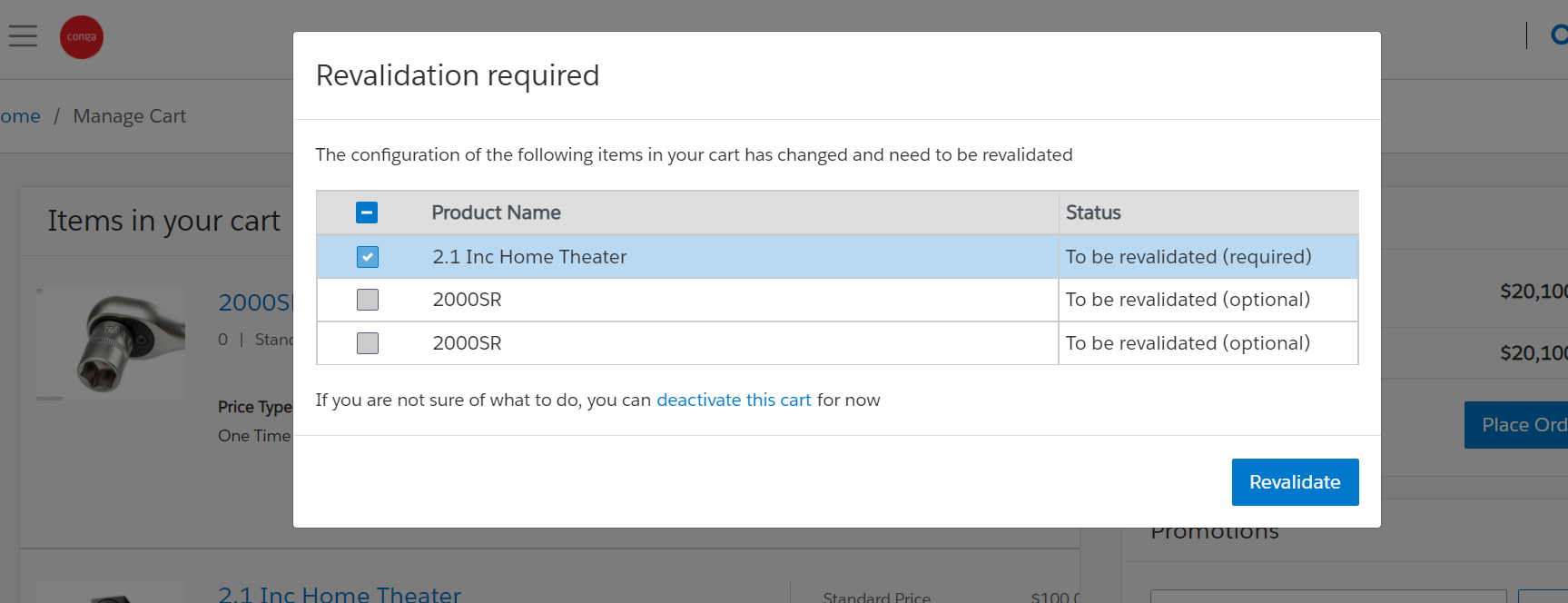Download PDF
Download page Version 2103.0.40 (December '21).
Version 2103.0.40 (December '21)
New Feature
Following are the new features introduced in this release:
Availability of Digital Commerce Through Github
Previously, the Conga Cloud Ops team provided access to the npm packages and libraries along with other artifacts to download and deploy the Digital Commerce application.
With the December '21 release, the following changes are done for easy access to the artifacts through a public facing Github repository.
- The core, ecommerce, and elements libraries that form the SDK are now hosted in a public github repository.
- To install the SDK packages, you must rename the old package location to the new package location in the package.json file before running the npm install command.
- All the SDK libraries along with ecommerce and partner-commerce base templates are moved to a mono repository structure (single repository).
After the SDK libraries are built, they are published to the github release registries in the public repository with read access.
All these changes ensure that all the consumable code base is under a single repository.
Support for Based on Pricelist in Storefront
You can now set up Based on Pricelist from the Storefront or at the customer level to cater to geographical or customer specific adjustment differences of the prices in the catalog.
This feature is supported in Turbo mode ONLY.
Support for Defer Pricing
With the Defer Pricing check box enabled in Config System Properties, you can now perform pricing of products only after you click the Update Price button; whereas, clearing this check box enables the system to perform pricing as and when you add or delete products.
Important
In case your Digital Commerce application is running with your CPQ implementation, enabling Defer Pricing on the global custom setting affects your CPQ implementation.
A warning message is displayed only when there is at least 1 line item pending pricing in the cart. When Defer Pricing is turned on or when prices are still being calculated for the cart, the price and the cart total amount are masked.

If there is at least one line item that is priced in the cart, the pricing amount for that line item is displayed with an asterisk (*) along with a message that pricing is not updated.

Clone Cart API
Using the Clone Cart API, you can create an exact clone of the source cart and then continue to work on the cloned cart. The Clone Cart API takes the source cart ID and returns back cloned cart details. By default, the cloned cart is activated. The Clone Cart can clone a cart of up to 250 line items.
Revalidating the Product Configuration
You can revalidate your saved quote for the product structure changes. Saved quotes created in the past might have a product for which structure or rule has been changed. This can affect the validity of such a quote when you re-open the configuration.

Clearing API Cache
You can now clear API cache in two ways: Clear API Cache button to clear cache from the Storefront object or scheduled job to delete old cache records. A new button "Clear API Cache" is introduced on the Storefront object. This button automates the API Cache clearing process. After the cache is cleared, the remaining cache data is displayed in the Cache Size field on the Storefront object.
You can schedule a batch job to delete cache records when a profile is changed.
New REST APIs to Replace SOAP Handlers
The following new REST APIs are added to replace SOAP handlers.
API Name | Description |
|---|---|
| renewAsset | Invoke this API for renewing assets. |
| incrementAsset | Invoke this API to buy more assets. |
| amendAsset | Invoke this API for change configuration of assets. |
| generate-document | This API is responsible to generate the document based on the template and SObject type. |
| abandon | Abandon Cart API discards the cart along with Line Items and related objects. |
Enhancements
The following section describes existing features that are changed (or are no longer supported) in this release.
Passing a Pricelist Directly Using the Create Cart API
The Create Cart API enables you to pass a pricelist directly to create a new cart using the defined pricelist. This is useful in case of multiple pricelists within the same account. For example, an account uses different currency pricelist based on geographical location.
Update to the Terminate Asset API
The Terminate Asset API is updated to include cart ID in the path rather then passing in the request body.
Concurrency of Actions
Previously, performing multiple actions on the cart page resulted in waiting time or displaying errors. For example, you delete a line item on the cart. While the line item is being deleted and cart repriced, you change the quantity of a different line item on the same cart.
With this enhancement, you can now perform multiple actions with no limits to the number of actions you perform.